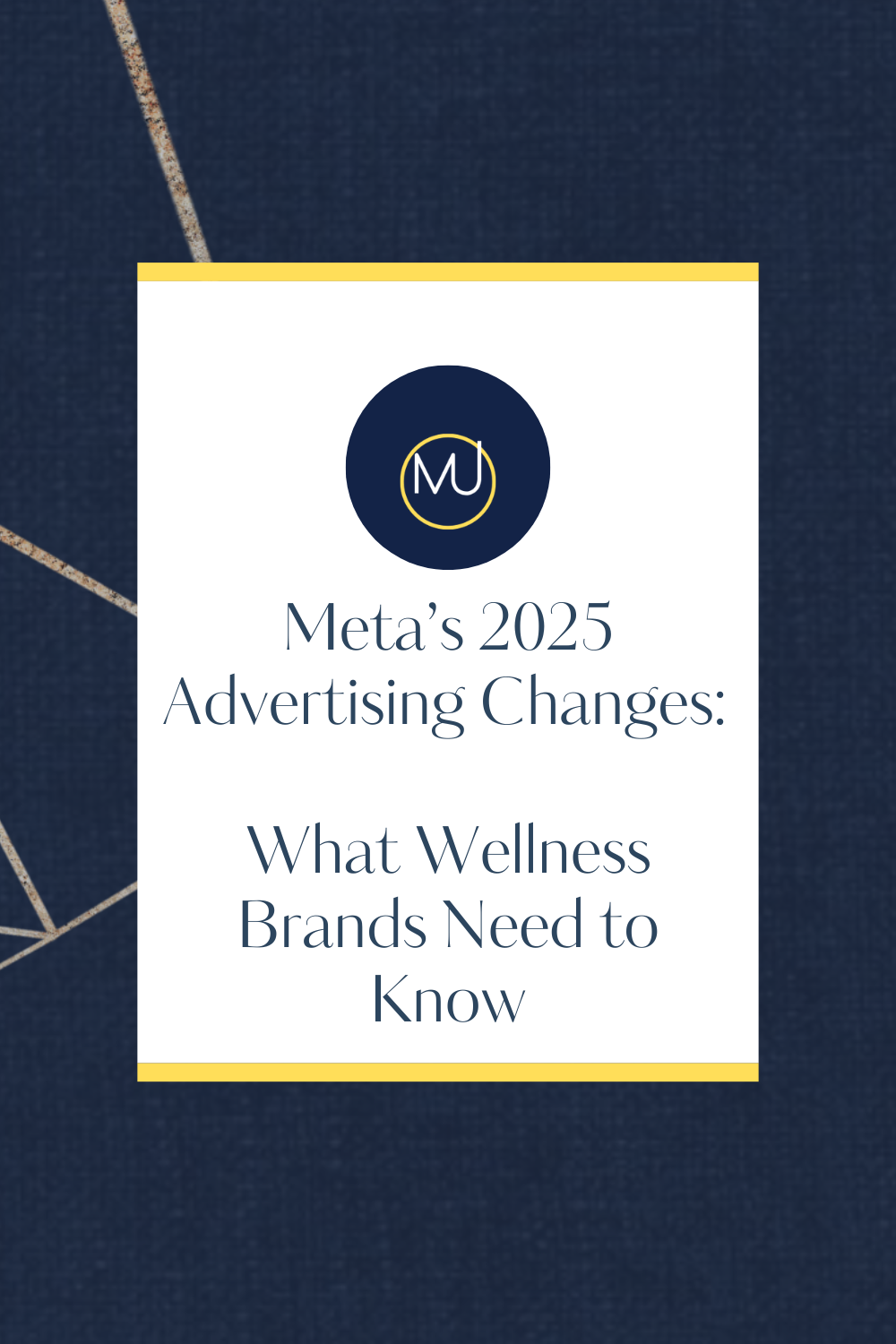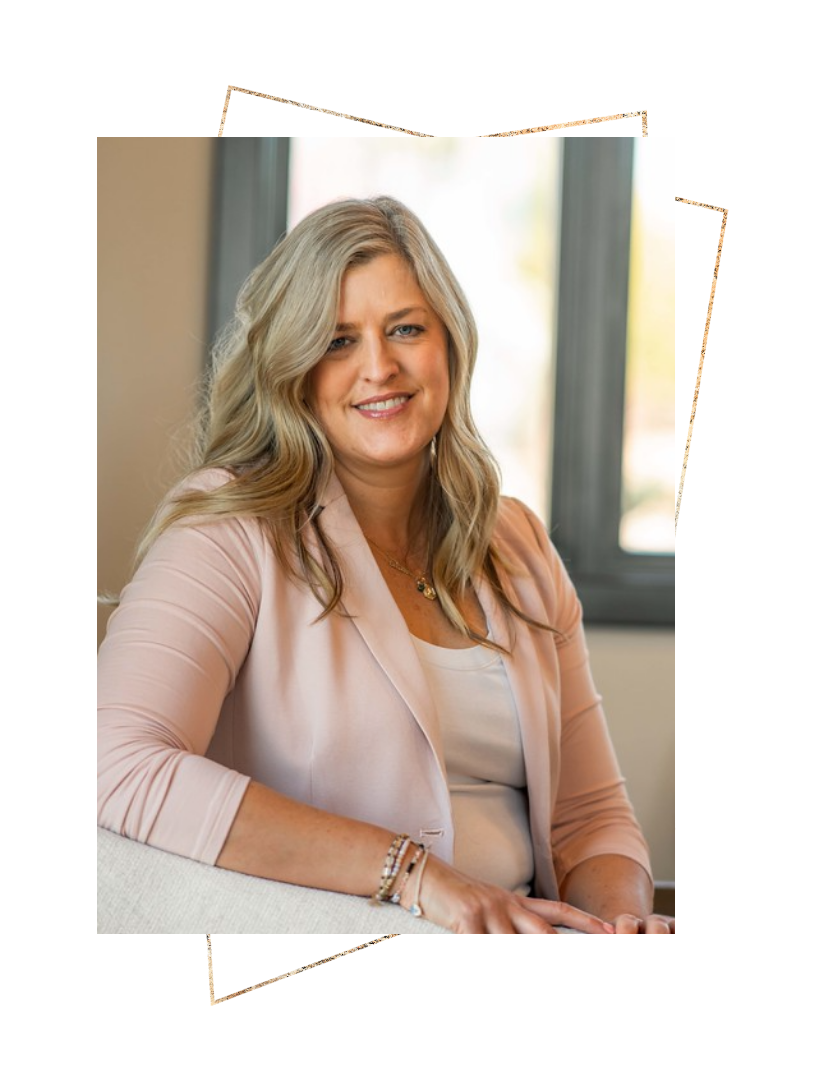Big changes are coming to Meta advertising in 2025, and if your business operates in the health and wellness niche, it’s time to prepare. Meta is introducing stricter policies for sensitive ad categories, with health and wellness being one of the most impacted. These changes aim to address privacy concerns and legal risks by limiting data sharing for businesses categorized under sensitive topics. While these updates are intended to protect users, they will have significant implications for your ad campaigns.
Here’s what you need to know and how to adapt your strategy.
What’s Changing for Wellness Advertisers?
Meta is rolling out new restrictions that could limit or completely block the tracking and optimization of certain events through tools like the Meta Pixel and Conversions API (CAPI). Here’s how this impacts wellness brands:
What Does the “Wellness” Category Include?
If your brand discusses or markets products related to:
- Mental health: Topics like ADHD, anxiety, or depression.
- Physical health: Weight loss, fitness supplements, or joint health.
- Medical conditions: Chronic illnesses or treatments. You may fall into the restricted wellness category. This also applies to businesses focusing on provider-patient relationships (e.g., therapy services or patient portals).
What Do Full and Partial Restrictions Mean?
- Full Restrictions
- Complete blocking of tracking tools like Pixel and CAPI for sensitive events (e.g., purchases, Add to Cart).
- No user data will be processed or shared with Meta from restricted events.
- Partial Restrictions
- Mid- and lower-funnel events like Add to Cart or Purchase may have limited functionality, meaning fewer tools to optimize these actions.
- Some Pixel events may still work but won’t allow tracking for conversion purposes.
Why Does Conversion Tracking Matter?
Conversion tracking is critical for advertisers because it provides visibility into the effectiveness of your campaigns. For example, if you’re running ads for a course or membership, conversion tracking lets you know if a user clicks your ad and makes a purchase. Without this data, you won’t know which ads are driving sales, making it harder to optimize your campaigns and allocate your budget effectively.
The new restrictions mean that many lower-funnel actions—like purchases or sign-ups—will no longer be trackable for wellness brands. This can significantly impact your ability to measure ROI and refine your strategy.
To manage data source categories in Events Manager:
- Go to Meta Events Manager (https://www.facebook.com/events_manager2/).
- Click the Data sources icon in the left menu of the page.
- Select the name and ID of your data.
- Click the Settings tab at the top of the page.
- Scroll to the Manage data source categories section. You may not see the Manage data source categories section if your data sources are not in any of the categories.
- Learn about data source categories (https://www.facebook.com/business/help/1402913027039332).
- Click Manage.
- Check your data sources, categories and statuses:
- Click Confirm if you think your data source is categorized accurately.
- If you think your data source is not categorized accurately, click the arrow next to the Confirm button and select Request review. You’ll see a message that says that you’ve successfully requested the review.
- Click View details to see more information if you’ve already requested a review of your data source category
- If you don’t have anything listed, then you’re good to go!
Understanding the Funnel and Ad Objectives
To navigate these changes, it’s important to understand the different levels of the marketing funnel:
- Upper-Funnel (Awareness): These ads aim to introduce your brand to a wide audience and build awareness. Objectives include reach, impressions, and video views.
Example: A video ad showcasing the benefits of your wellness product to a broad audience. - Mid-Funnel (Consideration): These ads target people who already know about your brand and encourage engagement or exploration. Objectives include landing page views, traffic, or app installs.
Example: A carousel ad directing users to read a blog post about healthy living. - Lower-Funnel (Conversions): These ads focus on driving actions like purchases, sign-ups, or downloads. Objectives include Add to Cart and Purchase.
Example: A retargeting ad offering a discount to users who added a product to their cart but didn’t complete the purchase.
Meta’s restrictions will severely limit mid- and lower-funnel strategies for wellness brands, requiring advertisers to rethink how they engage and convert audiences.
How Wellness Brands Can Adapt
If your wellness brand relies on Meta ads for driving traffic, sign-ups, or sales, it’s time to pivot your strategy. Here’s how:
1. Review Your Categorization
- Check your brand’s classification in Meta’s Events Manager under “Manage Data Source Categories.”
- If misclassified, file an appeal promptly to avoid unnecessary restrictions.
2. Reposition Your Messaging
- Avoid specific medical or health-related claims. Instead, focus on general wellness benefits:
- Replace “reduces stress” with “supports relaxation.”
- Swap “treats ADHD symptoms” with “helps with focus and attention.”
- Update product categories to emphasize broad, inclusive terms like “Daily Wellness” or “Lifestyle Support.”
3. Shift Your Campaign Focus
- Focus on upper-funnel objectives like reach, awareness, and engagement to build brand recognition.
- Use mid-funnel tactics like landing page views or lead generation to nurture your audience.
4. Leverage Third-Party Tools
- Consider analytics platforms like Triple Whale or Northbeam to track and optimize lower-funnel performance outside Meta’s ecosystem.
5. Join the MomentumUp Ads Club
Navigating these changes alone can feel overwhelming, but you don’t have to go it alone. In the MomentumUp Ads Club, we help wellness brands like yours adapt to Meta’s evolving policies with expert guidance, tailored strategies, and a supportive community. Click here to join the Ads Club and take control of your ad strategy with confidence.
Prepare for Attribution Challenges
The inability to track lower-funnel events means you’ll need to rely more on creative, upper-funnel strategies to engage your audience and guide them toward conversion. Strong messaging and a well-optimized sales funnel will be more important than ever.
Final Thoughts
Meta’s new advertising policies are a significant shift, but with the right approach, your wellness brand can still thrive. By rethinking your messaging, focusing on broader objectives, and leveraging alternative analytics tools, you can continue to grow your business while staying compliant.
If you’re feeling unsure about how to implement these strategies, the MomentumUp Ads Club is here to help. From adapting your campaigns to optimizing your funnel, we provide the tools, insights, and community support you need to succeed. Join us today and confidently tackle the changes ahead!
About Me
Hi, I’m Amanda, a marketing coach and Meta ads expert passionate about helping business owners in the health and wellness space scale their brands. With years of experience running successful ad campaigns, I specialize in simplifying the complexities of Meta advertising to empower you to take control of your marketing. When I’m not helping entrepreneurs achieve their goals, you’ll find me lifting weights, exploring new recipes, or hiking with my family. Let’s work together to make your ads work harder for you!



